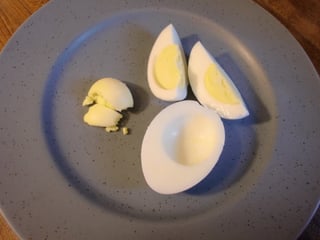I'm steaming eggs, rather than hard-boiling (I want the same effect), because it's convenient as I'm using the steam from some boiling chickpeas underneath.
But I can't seem to find a definitive estimate for how long to keep them steaming.
One source says 20 minutes. http://www.communitychickens.com/2012/08/the-best-way-to-hardboil-eggs-is-to.html#.Uk0oAX-aejs
I imagine that's too long.
Another source implies 7 minutes. http://whatscookingwithkids.com/2011/05/27/forget-hard-boiling-eggs-steamed-eggs-are-easy-to-peel/ (In the comments.)
And then there is the usual time for hard-boiling, which is 10 minutes.
I don't want to cook them any longer than necessary.

